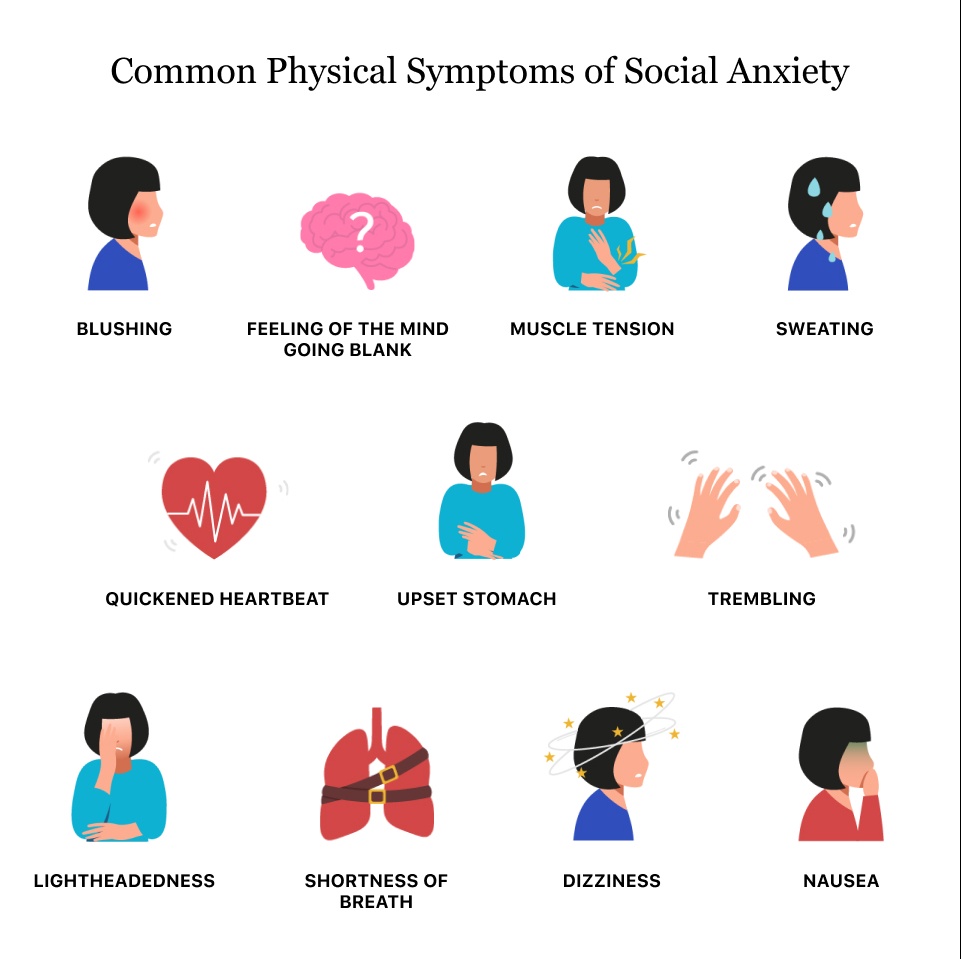What is Social Anxiety

Anxiety issues are among the most prevalent mental illnesses in the United States, impacting an estimated 40 million persons over 18 each year. Sadly, about 63% of people with anxiety disorders do not obtain treatment, even though anxiety illnesses are treatable.
Social anxiety disorder (or social phobia) is one of the numerous anxiety illnesses most Americans grapple with daily. According to the National Comorbidity Survey Replication data, social anxiety affects an estimated 7.1 percent of American adults. It is estimated that 8.0 percent of women and 6.1 percent of men had a social anxiety disorder last year.
What is social anxiety disorder?
Those who suffer from Social Anxiety Disorder, often known as social phobia, are plagued by emotional distress, dread, and discomfort while in public. While it is possible for someone to feel uncomfortable in social situations, those who suffer from social anxiety disorder have an abnormally high level of anxiety while interacting with other people in various contexts. They often worry that they will be scrutinized or judged harshly.
Most people who suffer from social anxiety know that their concern is illogical, unfounded, and devoid of a logical foundation. Despite this, anxiety-related thoughts and sensations linger and can last for months, even years.
What causes social anxiety?
Many people suffer from anxiety. These anxieties plague a large. However, social anxiety disorder symptoms may be triggered by a variety of events and factors, which can include:
● Interacting with people
● Chatting with strangers
● Speaking in front of a crowd
● Drawing the most attention
● Being watched or physically supervised while doing something
● Being sneered at or ridiculed
● Having a conversation with an authority figure
● Speaking in front of the class
● Meeting date for the first time.
● Attending a meeting and speaking out
● Public restroom usage
● Taking an academic test
● Snacking and drinking in the open
● Contacting people through telephone
● Attending social events such as parties
Does Social Anxiety Get to the Point Where It’s an Issue?
In social circumstances, it’s common to have some anxiety now and again. Many individuals, for example, become nervous when they have to deliver a public presentation or attend a job interview. Anxiety over social situations may become an issue if it often occurs or in a severe manner. As a result, social anxiety may take a toll on many aspects of your life, including:
School and work
Inability to propose something or answer questions in seminars, work meetings, or at school; the refusal of job promotion; avoidance of specific occupations or career pathways are everyday things those with social phobia battle daily. Others include unsatisfactory productivity in the workplace or school; lost pleasure in work or education, but they come to mind just a few examples.
Social connections
People who suffer from severe social phobias, for example, have difficulties forming and maintaining friendships and sexual engagements, as well as opening up to people and conveying their emotions.
Hobbies
Social phobias may make it difficult to try new things, attend seminars, or participate in exciting social activities that require you to engage with others, such as sledding or working out at the gym.
Routines
If you suffer from social anxiety disorder, you may find it difficult to carry out ordinary tasks such as grocery shopping, eating out, catching a taxi, asking for directions, and other similar activities.
The bottom line
Patience, courage, and a desire to put your therapist’s advice into practice may help you overcome social anxiety. Make a firm promise to yourself that you will not back down. It is a matter of will and determination. If you choose to conquer your social phobia, you may gradually become more comfortable with yourself.
Small steps increase confidence, allowing you to take the next ones, and so on. When worry and dread go away, a sense of self-worth, self-confidence, and positive sensations take their place. It’ll only be a matter of time until you shift your focus from the painful to the joyful parts of life.
